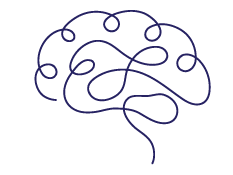Why Should I?
Our kids are influenced every day at home, in their communities, and in media. Peer pressure can exert a powerful influence because friends play such a significant role in the lives of our children. Teens begin to question the authority of parents, schools, government, and other traditional institutions. Their ability to think abstractly allows them to establish their own identity, to include their own belief system. Engaging our youth in discussions about moral reasoning can guide the development of their values and decision-making skills. It can also allow them to show off a different perspective to a dilemma, one which you may not have considered.
The Dilemma: Cheating
Own Your Actions
Road to Success
Loyalty
Choices
The Power of Words
Right from Wrong
Would you Rather?
|
|
Thoughtful
When we practice random acts of kindness, it releases positivity. We feel better, and the recipients of our acts feel better, which makes them more likely to be kind to others! Kindness can also reduce stress, reduce physical pain, strengthen bonds between people, and enhance both physical and mental health.
First Class Kindness
Say Something
Kudos
Just a Mess
What Makes Your Heart Happy?
Tootle Rocks!
Kindness Catchers
20 Things We Should Say More Often
|



